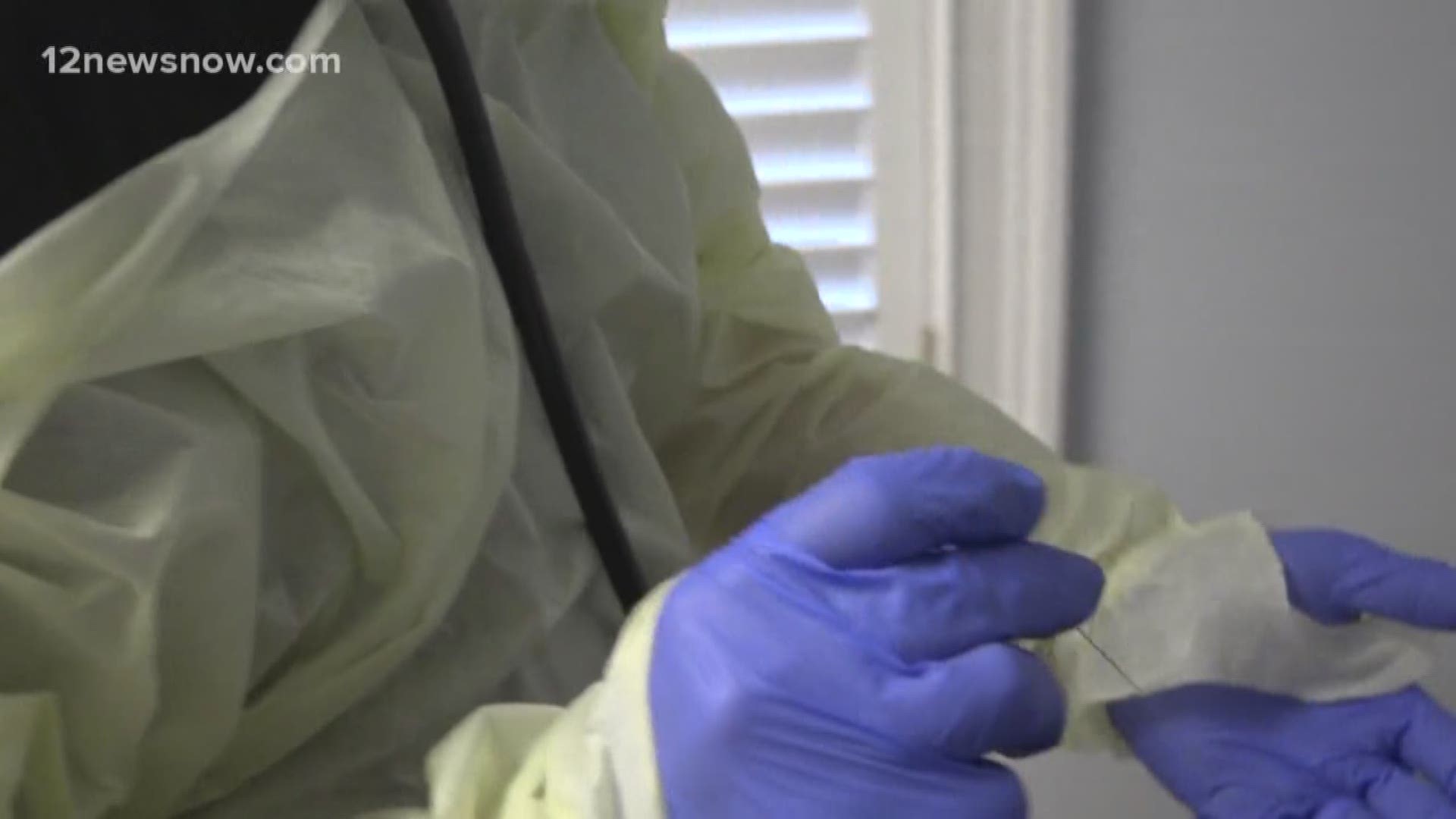BEAUMONT, Texas — Newly released data from the Texas Health and Human Services Commission gives us a glimpse at what nursing homes across the state are dealing with.
So far, 435 long-term care facilities have COVID-19 cases inside.
HHSC reports 3,559 long-term care residents have tested positive. Of those, 614 have died, with 100 new deaths since last Monday.
Brian Lee is the executive director of Families for Better Care.
"To see there are nearly 4,000 cases just shows the ugly underbelly of what's happening in nursing homes," Lee said.
In April, 12News reported on two Beaumont nursing homes with positive cases.
At College Street Health Care Center, 21 patients and 6 staff members tested positive and 5 died. 78 people were tested.
Arden Place of Beaumont saw 9 positive tests of residents and one staff member tested positive. One person died.
Gov. Greg Abbott addressed the boom of COVID-19 cases in nursing homes during a news conference Monday.
"Another safe practice that must be emphasized is protecting out most vulnerable Texans," Abbott said.
MORE | Testing FAQs
District Chief Scott Wheat with the Beaumont Fire Department says firefighters assisted at those locations, and will continue to help.
Chief Wheat says a nursing home facility can choose their own contractor.
If not, the fire department can help them find a medical contractor.
Or they can look at other options, like the public health department, DSHS or the Texas Military Department Mobile Test Teams.
Advocates say the work needs to happen fast, to help stop the spread.
"The more we learn, the more people are tested, the more we're going to find folks who have contracted the coronavirus," Lee said.
Coronavirus symptoms
The symptoms of coronavirus can be similar to the flu or a bad cold. Symptoms include a fever, cough and shortness of breath, according to the Centers for Disease Control.
Most healthy people will have mild symptoms. A study of more than 72,000 patients by the Centers for Disease Control in China showed 80 percent of the cases there were mild.
But infections can cause pneumonia, severe acute respiratory syndrome, kidney failure and even death, according to the World Health Organization. Older people with underlying health conditions are most at risk.
The CDC believes symptoms may appear anywhere from two to 14 days after being exposed.
RELATED: VERIFY: No, members of Congress who are self-quarantined for coronavirus cannot vote remotely
Human coronaviruses are usually spread through...
- The air by coughing or sneezing
- Close personal contact, such as touching or shaking hands
- Touching an object or surface with the virus on it, then touching your mouth, nose or eyes before washing your hands.
Help stop the spread of coronavirus
- Stay home when you are sick.
- Eat and sleep separately from your family members
- Use different utensils and dishes
- Cover your cough or sneeze with your arm, not your hand.
- If you use a tissue, throw it in the trash
Lower your risk
- Wash your hands often with soap and water for at least 20 seconds. If soap and water are not available, use an alcohol-based hand sanitizer.
- Avoid touching your eyes, nose, and mouth with unwashed hands.
- Avoid close contact with people who are sick.
- Clean and disinfect frequently touched objects and surfaces.
- If you are 60 or over and have an underlying health condition such as cardiovascular disease, diabetes or respiratory illnesses like asthma or COPD, the World Health Organization advises you to try to avoid crowds or places where you might interact with people who are sick.

